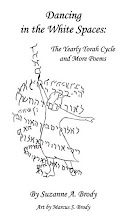Me: [person we've never met but with family connections to us] is coming to LA, so my mom gave them our phone number.
Meital: Tell them to give it back!
Monday, April 20, 2009
Wednesday, April 1, 2009
Dvar Torah Parshat Tzav/HaGadol
One year, our congregation hired a new rabbi with fire in her heart. She aimed to change our worlds. She worked tirelessly, burning the candle at both ends as she sought to single-handedly reinvigorate not only our slowly dying synagogue but all of Judaism. But, no one came to the mind-blowing classes that offered and the soulful services she lead didn’t lift the souls that weren’t there. Slowly, her enthusiasm for Judaism and Jewish leadership dimmed and that fire in her heart burned out. Eventually, she had to leave our synagogue, and I haven’t heard of her or her visions since.
But, if we had heeded one of the most important lessons from this week’s Torah reading, maybe things would have turned out differently for our rabbi. In the days when we still offered sacrifices, the priests knew how to keep a fire burning on the altar day and night, as it says: וְאֵשׁ הַמִּזְבֵּחַ תּוּקַד בּֽוֹ, “while the fire on the altar is kept going on it.” (Leviticus 6:2) Literally, however, the last word of the verse, בּֽוֹ, means “in it,” not “on it.” The Etz Chayim commentary suggests that the use of this ambiguous preposition comes to teach that “the fire on the altar must be paralleled by a fire in the heart of the officiating priest.” The priest, after all, as the one who performed the actual sacrifice for the person, was instrumental in affecting the way that any given sacrifice was received by G-d. The Cohen, therefore, should ideally be someone “whose enthusiasm for the sacred nature of the work must never be lost” lest it come to negatively impact on the very people he was supposed to be helping.
Today, we don’t need priests to perform our sacrifices for us. When the Sages proclaimed that prayer would serve as a substitute for sacrifice, they gave the Jewish people the gift of offerings that each person can deliver to G-d without the need for any intermediaries at all. And yet, even the most learned and most spiritually gifted among us depend upon rabbis and other leaders of the Jewish community for guidance and, sometimes, even intersession with G-d. It is these leaders of our communities whose fire and enthusiasm sustain us both as individuals and as a community.
But, fire that is left untended, like that of the rabbi in our story, will eventually go out. It was only through the hard work of the priests that the fires on the altar burned day and night, allowing the people’s offerings to be consumed. Only by adding wood to fire at regular intervals can it be sustained. The same is true of the internal fires of the leaders of our communities. Only when congregations work together with their leaders to constantly feed their vision and fuel their fires will Jews be capable of continually offering meaningful sacrifices to G-d.
But, if we had heeded one of the most important lessons from this week’s Torah reading, maybe things would have turned out differently for our rabbi. In the days when we still offered sacrifices, the priests knew how to keep a fire burning on the altar day and night, as it says: וְאֵשׁ הַמִּזְבֵּחַ תּוּקַד בּֽוֹ, “while the fire on the altar is kept going on it.” (Leviticus 6:2) Literally, however, the last word of the verse, בּֽוֹ, means “in it,” not “on it.” The Etz Chayim commentary suggests that the use of this ambiguous preposition comes to teach that “the fire on the altar must be paralleled by a fire in the heart of the officiating priest.” The priest, after all, as the one who performed the actual sacrifice for the person, was instrumental in affecting the way that any given sacrifice was received by G-d. The Cohen, therefore, should ideally be someone “whose enthusiasm for the sacred nature of the work must never be lost” lest it come to negatively impact on the very people he was supposed to be helping.
Today, we don’t need priests to perform our sacrifices for us. When the Sages proclaimed that prayer would serve as a substitute for sacrifice, they gave the Jewish people the gift of offerings that each person can deliver to G-d without the need for any intermediaries at all. And yet, even the most learned and most spiritually gifted among us depend upon rabbis and other leaders of the Jewish community for guidance and, sometimes, even intersession with G-d. It is these leaders of our communities whose fire and enthusiasm sustain us both as individuals and as a community.
But, fire that is left untended, like that of the rabbi in our story, will eventually go out. It was only through the hard work of the priests that the fires on the altar burned day and night, allowing the people’s offerings to be consumed. Only by adding wood to fire at regular intervals can it be sustained. The same is true of the internal fires of the leaders of our communities. Only when congregations work together with their leaders to constantly feed their vision and fuel their fires will Jews be capable of continually offering meaningful sacrifices to G-d.
Subscribe to:
Posts (Atom)
